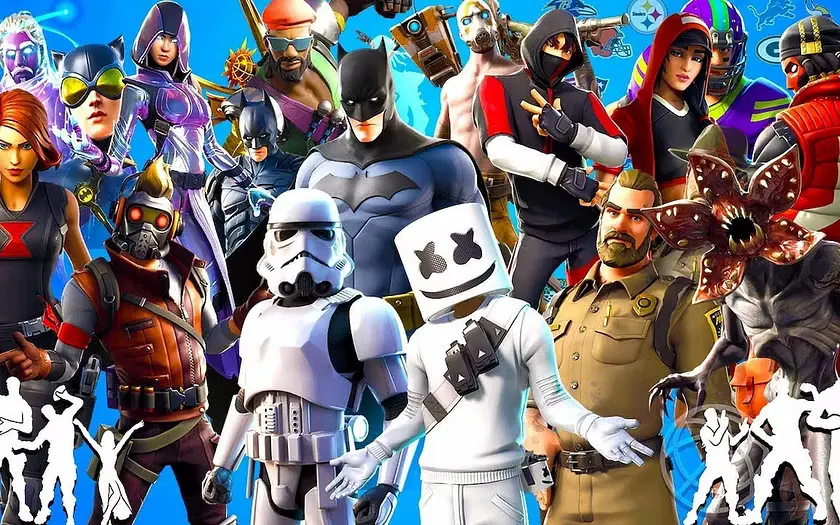The gaming industry has undergone a remarkable evolution over the decades, transitioning from traditional board games to the digital realm of video games. From simple dice rolls to cutting-edge virtual reality experiences, the gaming landscape has transformed dramatically, shaping the way we play and interact with games. In this article, we’ll explore the evolution of the gaming industry, from its humble board game origins to the immersive world of video games.
The Early Days: Board Games and Puzzles
The roots of gaming can be traced back thousands of years when ancient civilizations engaged in board games and puzzles. Games like chess, backgammon, and Senet were popular in different cultures, offering recreational and strategic challenges to players.
The Rise of Traditional Card Games
Card games became popular in the 14th century, with the creation of playing cards in China and their spread to Europe. Classics like poker, bridge, and solitaire captured the imagination of players worldwide, providing endless hours of entertainment.
The Birth of Modern Board Games
In the 19th and 20th centuries, board games experienced a renaissance with the introduction of modern classics like “Monopoly,” “Clue,” and “Scrabble.” These games combined luck, strategy, and player interaction, becoming staples in households around the world.
The Dawn of Video Games
The late 20th century marked the advent of video games with the introduction of “Pong” in 1972. Arcade machines and home consoles like the Atari 2600 and Nintendo Entertainment System (NES) brought gaming into the living rooms of millions.
The Golden Age of Arcade Games
The 1980s saw a surge in arcade culture, with iconic titles like “Space Invaders,” “Pac-Man,” and “Donkey Kong” captivating players in arcades worldwide. High scores and competitive gameplay were hallmarks of this era.
Home Consoles and the Gaming Boom
The popularity of home consoles skyrocketed with the release of the Sega Genesis and Super Nintendo Entertainment System (SNES) in the early 1990s. Video games became more accessible and diverse, appealing to players of all ages.
The Internet Age: Online Multiplayer and Connectivity
The late 1990s and early 2000s brought the rise of online gaming. With the advent of high-speed internet, players could connect and compete with others from around the globe. Online multiplayer became a defining feature of modern gaming.
The Shift to Mobile Gaming
The proliferation of smartphones in the late 2000s led to a surge in mobile gaming. Games like “Angry Birds,” “Candy Crush Saga,” and “Pokémon GO” captivated players with their accessibility and addictive gameplay.
The Emergence of Virtual Reality (VR) Gaming
In recent years, virtual reality gaming has revolutionized the gaming experience, offering players an unparalleled level of immersion and interaction. VR headsets and motion controllers have opened new frontiers in gaming.
The Future of Gaming: Streaming and Beyond
The gaming industry continues to evolve with the rise of cloud gaming and game streaming services. Players can access games on various devices without the need for powerful hardware, marking a new era in gaming accessibility.
Conclusion
The evolution of the gaming industry has been a fascinating journey, from ancient board games to the futuristic realm of virtual reality and cloud gaming. As technology continues to advance, we can expect even more innovations and experiences that will shape the future of gaming. Whether gathering around a board game with friends or exploring virtual worlds in video games, gaming remains a timeless and cherished form of entertainment for people of all ages.
FAQs
- What are some other notable milestones in the evolution of the gaming industry?
Other notable milestones include the introduction of 3D graphics in gaming, the launch of massively multiplayer online games (MMOs), and the integration of motion-sensing technologies like the Wii Remote. - Are board games still popular today?
Yes, board games have experienced a resurgence in popularity in recent years, with a growing community of enthusiasts and a wide variety of modern board game releases. - What impact has esports had on the gaming industry?
Esports has turned gaming into a competitive spectator sport, attracting millions of viewers and generating a vibrant industry around competitive gaming events and professional players. - How has digital distribution impacted the gaming industry?
Digital distribution platforms like Steam, PlayStation Network, and Xbox Live have made it easier for developers to distribute their games directly to players, facilitating indie game development and increasing accessibility.













